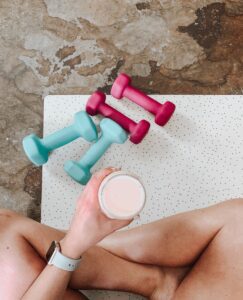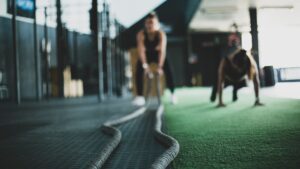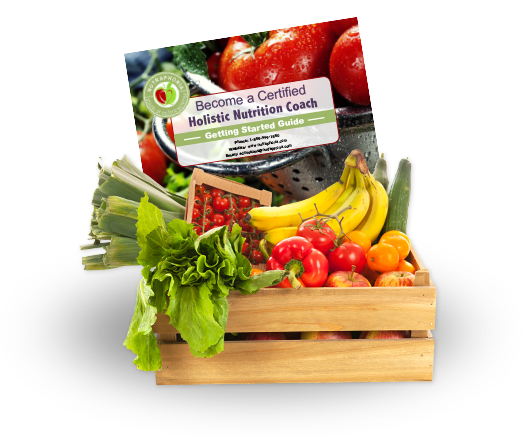August 30, 2024
Fuelling Performance and Recovery
As athletes, we demand a lot from our bodies, which means that targeted replenishment and support is paramount to keep them fuelled. Whether you’re a dedicated runner, a powerlifter, a yogi, or you engage in any other form of consistent physical activity, your nutrition plays a pivotal role in determining both your performance level and your recovery time.
While traditional sports nutrition focuses on macronutrient ratios and supplements, holistic nutrition provides a more comprehensive approach, considering also the interconnectedness of mind, body, and spirit. In this blog post, we’ll explore how holistic nutrition can enhance your athletic journey, helping to keep you fuelled for whatever comes next.

Understanding Holistic Nutrition
Holistic nutrition is a philosophy that treats the body as a whole, recognizing that every choice we make, whether related to the foods we eat, our exercise, sleep, or how we handle stress, all impacts our overall well-being.
It’s about nourishing the body from the inside-out; Not only with the most optimal foods for the season we are in, but also with our thoughts, mindfulness, and other balanced lifestyle choices.
This approach can certainly be transformative for athletes, as it aims to improve energy levels, mental clarity, immunity, how restfully we sleep, and more – All of which contributes to optimal performance and recovery.
The Foundation: Whole, Nutrient-Dense Foods
At the core of holistic nutrition for athletes is the emphasis on whole, nutrient-dense foods over more heavily processed alternatives. These foods provide the necessary vitamins, minerals, antioxidants, and fiber to support energy production, muscle function, and immune health in a highly absorbable form.
Incorporating a variety of colorful fruits and vegetables, whole grains, lean proteins, and healthy fats into your diet is a fantastic place to start!
Fruits and Vegetables
These foods are rich in antioxidants that help combat oxidative stress caused by intense workouts. They also provide essential vitamins and minerals like vitamin C, potassium, and magnesium, as well as a diverse array of prebiotic plant fibers to feed and develop a strong, resilient microbiome.
Whole Grains
Complex carbohydrates found in whole grains, such as quinoa, brown rice, and oats, can provide sustained energy for your workouts and aid in muscle recovery.
Opt for organic, glyphosate-free, and sprouted options whenever possible to reduce the effect of anti-nutrients, and boost absorption of essential compounds.
Lean Proteins
Include sources like lean meats, poultry, fish, beans, lentils, eggs, and tofu. Protein is crucial for repairing and building muscle, strengthening bones, and maintaining a healthy brain.
Healthy Fats
Avocados, nuts, seeds, grass-fed butter and olive oil offer healthy fats that support joint health, help regulate inflammation, and keep you feeling satiated through seasons of strenuous physical exertion.
Hydration: The Key to Optimal Performance
Proper hydration is essential for athletes. Water supports digestion, nutrient absorption, temperature regulation, and overall bodily function.
Consume mineral-rich water consistently throughout the day, and adjust your intake based on the intensity of your workouts and the climate you’re in.
You can add a small granule of mineral-rich grey salt, or invest in quality mineral drops that you can add to each bottle of water you drink to ensure the water is actually being taken up by your cells.

Pre-Workout Nutrition
Fueling your body before a workout can also enhance athletic performance. Aim to eat a balanced meal containing carbohydrates, proteins, and fats about 2 hours before exercise. This provides the energy needed to power through your workout.
During Workout Nutrition
For longer, more intense workouts, consider refuelling with easily digestible sources of carbohydrates, such as a banana, orange, or energy gels.
Staying hydrated is equally important during your workout, so take regular sips of mineral-rich water. Coconut water is also an excellent source of electrolytes and can be a natural alternative to Gatorade during intense workouts.

Post-Workout Recovery
The post-workout period is when your body is primed to absorb nutrients and promote muscle repair the most. Within 30 minutes to an hour after your workout, consume a combination of carbohydrates and proteins to replenish glycogen stores and aid muscle recovery.
A protein shake with fruit and a fat source like coconut or avocado, or a balanced meal with lean protein and a carbohydrate source like sweet potatoes or parsnips is a great choice.
Mindful Eating and Stress Management
Holistic nutrition isn’t just about physical nourishment; it extends to mental well-being too. Practicing mindful eating by eating slowly, savouring each bite, chewing your food well, and being present, all can help to improve digestion and nutrient absorption, and it allows you to listen to your body’s hunger and fullness cues.
Additionally, managing stress through techniques like meditation, yoga, or deep breathing can have a significant impact on both your athletic performance and your digestive health. Chronic stress can hinder recovery and weaken the immune system, so finding healthy ways to manage stress is crucial for athletes.
Customizing Your Approach
Remember, every athlete is unique, and there’s no one-size-fits-all approach to nutrition. Bio-individual factors such as body type, training intensity, goals, and food sensitivities all play a role in determining what works best for you. Consider working with a holistic nutritionist who can help tailor a nutrition plan that aligns with your individual needs and goals, or take things a step further and study Sport & Fitness Nutrition for yourself!.
Final Thoughts
Holistic nutrition goes far beyond just feeding the body. Its aim is to nourish the entire being; Mind, body, and spirit. By adopting a holistic approach to nutrition, athletes can experience improved performance, enhanced recovery, and an overall deeper sense of well-being. Remember: Your body is your most important tool, so treat it with the care and respect it deserves! Embrace the power of whole, nutrient-dense foods, mindful eating, and stress management techniques to unlock your fullest athletic potential!


